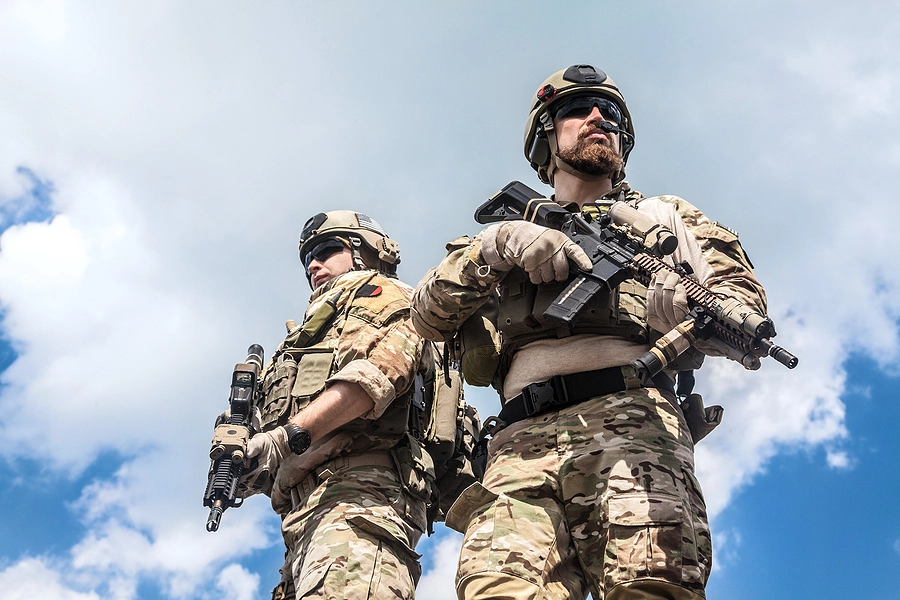Veterans can leverage buddy statements, or personal accounts from individuals who have knowledge of their disability or what caused it, to secure VA disability benefits.
Summary
- Buddy statements from witnesses can be crucial in strengthening a veteran’s VA disability appeal by providing first-hand testimony.
- Credible witnesses, including fellow service members, friends, family, or co-workers, can write buddy statements, offering insights into the veteran’s condition or circumstances.
- Buddy statements should focus on relevant details such as the in-service event that is the basis for the claim and how the disability affects the vet’s daily life and work.
- Veterans can submit multiple buddy statements, each on VA Form 21-10210, to bolster their claim.
If you are a veteran pursuing disability compensation for a service-related injury or illness, you may encounter resistance in the form of a VA denial. After the VA has denied your initial veterans disability benefits claim, you can provide additional evidence during the appeals process to overturn this decision.
Other than medical documentation and service records, buddy statements from witnesses to your condition can offer compelling proof of eligibility for VA disability benefits.
Whether you are trying to bolster your claim for VA disability benefits or a veteran has asked you to write a letter on their behalf, it is important to understand the elements, purpose, and value of a VA buddy statement.
At VetLaw, we can help you secure the evidence you need to establish your eligibility for VA disability benefits. Our veterans disability appeals attorneys understand how the VA works and we’re here to help you following a claim denial. Don’t hesitate to give us a call at (855) 573-1503 or submit a contact form to schedule a free consultation.
What is Included in a Buddy Statement?
VA Form 21-10210, which is what the VA uses for buddy statements, is fairly straightforward. In addition to the petitioner’s identification information, VA Form 21-10210 asks the witness to provide the following information:
- A description of first-hand knowledge or observations “about the facts or circumstances relevant to [the] claim”
- Relationship to the veteran
- Contact information
- A certification that the information in the statement is accurate to the best of the witness’ knowledge
Asking for eyewitness testimony that is relevant to the veteran’s claim is still a broad request. Depending on why the veteran filing the claim requested a buddy statement, it can be helpful to highlight or focus on certain details. For instance, consider a situation where a Navy SEAL veteran is struggling to establish an in-service connection.
The incident that caused their injury was confidential and their service record doesn’t offer the level of specificity necessary to convince the VA their physical condition is related to their military service. A buddy letter from another member of the veteran’s SEAL team could verify the event occurred and directly caused the injury.
In this example, the severity of the veteran’s injury is not in doubt, nor is the VA disputing that the veteran met the necessary service requirements. Therefore, it is most helpful for the person writing the VA buddy letter to concentrate their account on the in-service event and its causal relationship to the veteran’s injury.
How a Buddy Statement Can Help Your VA Disability Appeal
Essentially, the purpose of submitting a VA buddy statement, or buddy letter, is to have another person vouch for you. With a buddy statement, the VA is looking for either confirmation of what you have already described when you filed your VA disability claim, or new evidence that strengthens your case for benefits.
There are a number of situations where having a qualified witness provide a buddy statement can aid a veterans disability appeal. For example, a VA buddy statement can:
- Offer context for how the veteran’s disability is affecting their daily life
- Corroborate that the in-service event responsible for the veteran’s physical or mental condition happened
- Describe how the veteran’s behavior changed after the alleged in-service incident
- Explain how the veteran’s service-related condition has impacted their job performance and ability to work
Think of providing buddy letters for a VA disability appeal like calling witnesses in a trial. Your attorney may have already presented the facts supported by medical evidence and service records. However, the jury, or in this case the VA, still needs convincing.
Maybe they want evidence of a clearer connection between health issues and military service, verification that an incident took place during active duty, or a better understanding of how severe the veteran’s symptoms really are. Buddy statements can be an asset in these cases.
Who Can Write a Buddy Statement for a Veterans Disability Claim?
When you are considering who you want to ask to write a buddy statement for your VA disability appeal, you want someone who can credibility speak about your condition or the circumstances under which it occurred. There are three main types of witnesses who can provide buddy statements to the VA for veterans seeking benefits:
- Individuals who served with the veteran
- Friend or family member
- Co-worker or supervisor at work
However, this is not an exhaustive list. Other military personnel who didn’t directly serve with you but experienced the same conditions as you, such as exposure to hazardous chemicals, can also provide valuable buddy statements. For example, a fellow service member could write a buddy letter confirming persistent toxic exposure existed on the base where you both served.
If you are trying to show a medical nexus between your in-service toxic exposure and a health issue, a buddy letter from another service member who developed the same condition following toxic exposure at the same location could also help support your VA disability claim.
Speak With a VetLaw VA Disability Claims Attorney About Adding a Buddy Statement to Your Appeal
Although VA buddy statements are a helpful way to fill in the gaps in a veterans disability claim, they are just one component of a strong appeal. Our team of skilled veterans disability claims attorneys at VetLaw can guide you on how to provide the VA with a fuller picture of your case in order to secure disability compensation.
With our considerable experience, a history of high client satisfaction rates, and a diligent work ethic, VetLaw is the team you need to successfully appeal a VA decision. You can reach our VA disability lawyers at (855) 573-1503 or submit a contact form to schedule a free consultation.
Frequently Asked Questions
Can I submit more than one buddy statement to support my VA disability claim?
Yes, veterans are allowed to submit multiple buddy letters to strengthen their VA disability claims for benefits. Keep in mind that each person who writes a buddy statement for you needs to use a different VA Form 21-10210 to make their contribution.
How do I submit a lay statement to the VA?
You can either mail the buddy letter to the VA, or submit the buddy letter through an online form.
Does the VA accept buddy letters for appeals to increase disability ratings?
Yes, you can provide buddy statements to support your claim if you are receiving disability benefits but want to increase your VA rating. In that case, you would likely want buddy letters from people who can speak to how your service-related condition has changed over time. Likely, that would be your spouse, children, co-workers, and friends.







